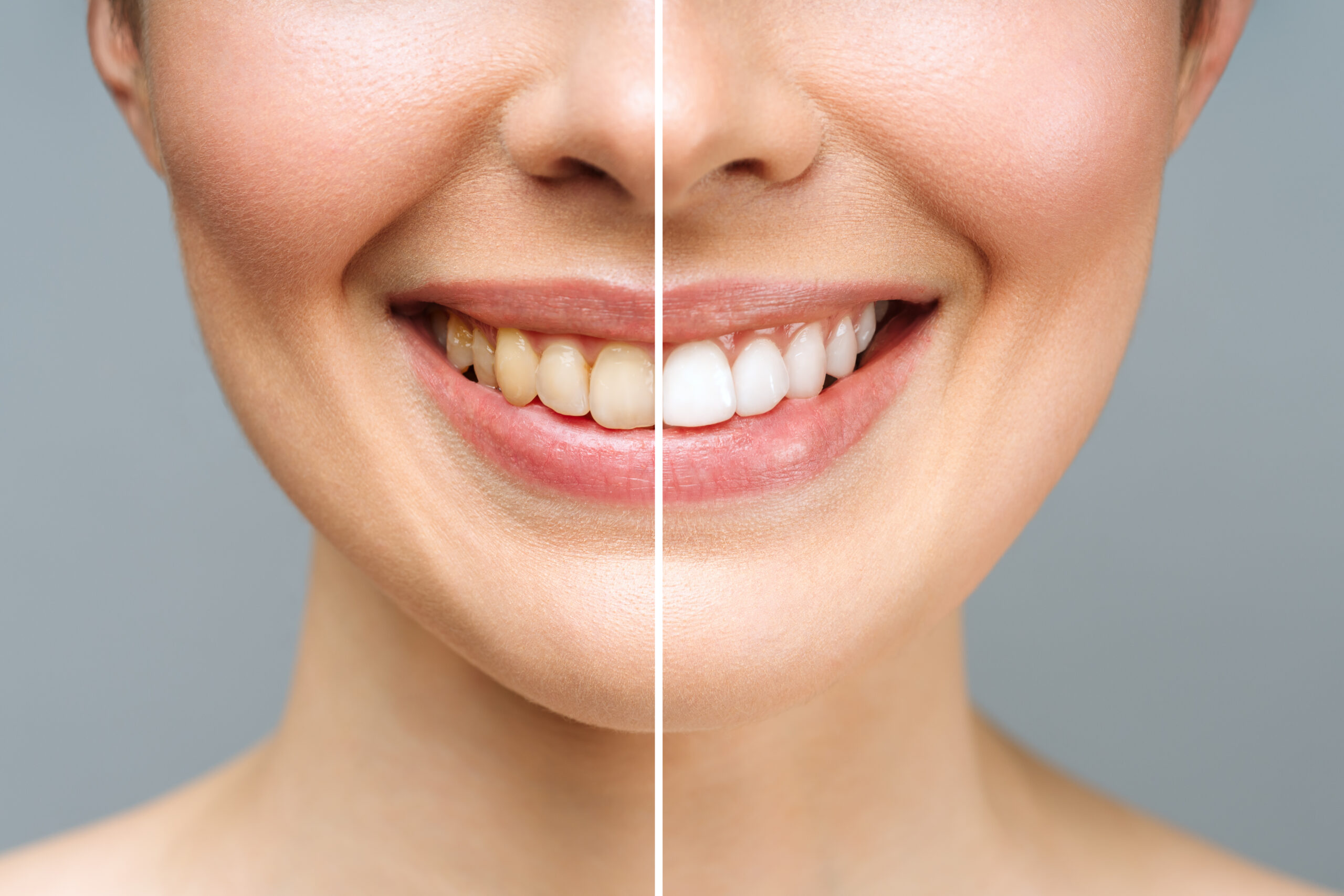A bright, white smile can boost your confidence and enhance your overall appearance. But with so many teeth whitening options available, how do you choose the right one?
Professional treatments offer quick and dramatic results. However, they can be costly and may cause sensitivity. On the other hand, at-home solutions are more affordable and convenient, but their effectiveness varies.
In this guide, we’ll explore both professional and at-home teeth whitening options. We’ll delve into their pros and cons, costs, and effectiveness. We’ll also touch on safety considerations and how to maintain your whitened smile.
Whether you’re considering a professional treatment at a Sandgate Family Dental or an at-home kit, this guide will help you make an informed decision.
So, let’s dive in and find the teeth whitening option that’s right for you.
Understanding Teeth Discoloration
Teeth discoloration is a common issue that many people face. It can be caused by various factors, including diet, age, certain medications, and lifestyle habits like smoking.
Understanding the type of discoloration you have is crucial. It can influence the effectiveness of different teeth whitening options and help you choose the right one.
Intrinsic vs. Extrinsic Stains
Extrinsic stains are surface stains. They’re usually caused by foods and drinks like coffee, tea, and red wine. These stains are generally easier to remove with both professional and at-home teeth whitening options.
Intrinsic stains, on the other hand, are deeper. They occur within the tooth and can be caused by factors like aging, trauma, or certain medications. These stains are more challenging to remove and may require professional dental procedures.
Professional Teeth Whitening Options
Professional teeth whitening is a popular choice for those seeking dramatic results. It’s performed by a dentist and involves the use of high-concentration bleaching gels.
The procedure is typically quick, often completed within an hour. It can lighten teeth by several shades in a single session.
In-Office Whitening Procedures
In-office whitening procedures involve the application of a high-concentration peroxide gel to the teeth. This gel is activated using a special light or laser to enhance its whitening effect.
The procedure is safe when performed by a professional. However, it may cause temporary tooth sensitivity. It’s important to discuss this with your dentist before the procedure.
Dentist-Supplied At-Home Kits
Dentist-supplied at-home kits are another professional whitening option. These kits contain a lower concentration of bleaching gel compared to in-office treatments.
They come with custom-fitted trays to ensure even application of the gel. While slower than in-office treatments, these kits can still provide significant whitening results over time.
At-Home Teeth Whitening Solutions
At-home teeth whitening solutions are a convenient and affordable alternative to professional treatments. They include over-the-counter products like whitening strips, gels, toothpastes, and mouthwashes.
Over-the-Counter Whitening Strips and Gels
Whitening strips and gels are popular at-home options. They contain a lower concentration of bleaching agents compared to professional treatments.
These products are applied directly to the teeth. They need to be used consistently over a period of days or weeks to see noticeable results.
Whitening Toothpastes and Mouthwashes
Whitening toothpastes and mouthwashes can help remove surface stains. They contain mild abrasives and polishing agents.
However, they can’t change the natural colour of your teeth. They’re best used as a supplement to other whitening methods.
Natural and DIY Whitening Methods
Natural and DIY methods, like using baking soda or activated charcoal, are also available. They’re often touted as safe and affordable alternatives. However, their effectiveness has not been proven and some may even damage teeth, they may not be suitable for everyone. It’s important to consult with a dentist before trying these methods.
Safety and Risks of Teeth Whitening
Teeth whitening, whether professional or at-home, is generally safe. However, it’s not without risks. Some people may experience tooth sensitivity or gum irritation.
These side effects are usually temporary. But it’s important to stop treatment and consult a dentist if they persist.
Professional Treatments vs. At-Home Kits
Professional treatments are performed under the supervision of a dentist. This reduces the risk of misuse and ensures the safety of your gums and teeth.
At-home kits, while convenient, require careful use. Overuse or incorrect application can lead to tooth damage or uneven whitening.
Managing Sensitivity and Gum Protection
To manage sensitivity, use a toothpaste designed for sensitive teeth. You can also reduce the frequency of your whitening treatments.
Protecting your gums is crucial. Always follow the product instructions and avoid getting the whitening agent on your gums.
Maintaining Your Whitened Smile
Once you’ve achieved your desired shade, maintaining your whitened smile is key. This involves both lifestyle changes and regular dental care.
Remember, teeth whitening isn’t permanent. Over time, your teeth can become stained again, especially if you consume certain foods and drinks.
Diet and Lifestyle Adjustments
Certain foods and drinks can stain your teeth. These include coffee, tea, red wine, and dark-coloured fruits and vegetables. Try to limit your intake of these.
Smoking also causes teeth discoloration. If you’re a smoker, consider quitting not just for whiter teeth, but for overall health.
Regular Dental Care and Touch-Up Treatments
Regular brushing and flossing can help maintain your whitened smile. Consider using a whitening toothpaste for added effect.
Touch-up treatments may also be necessary. Depending on the whitening method used, you might need a touch-up every 6 months to 2 years.
Conclusion: Choosing the Right Option for You
Choosing the right teeth whitening option depends on your individual needs, budget, and lifestyle. It’s important to weigh the pros and cons of each method and consider your personal comfort and convenience.
Consultation with a Dentist Sandgate
Before starting any whitening treatment, consult with a dentist. If you’re in Sandgate, there are many experienced dentists who can provide personalised advice and guide you through the process.
Ultimately, the best teeth whitening option is the one that fits your lifestyle and meets your whitening goals.








